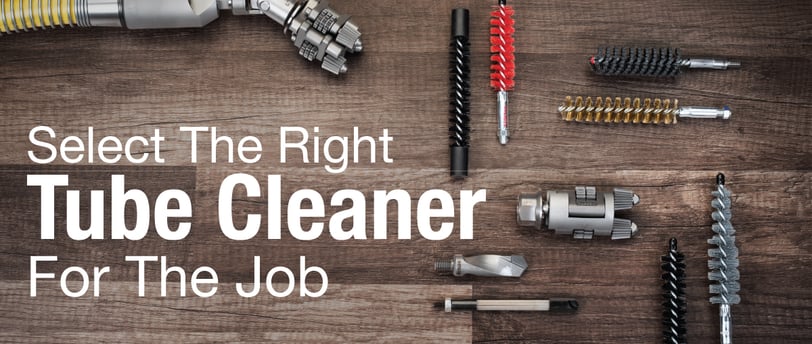Select The Right Tube Cleaner For The Job
highlights the importance of selecting the appropriate tube cleaner for the job, with a variety of brushes, heads, and equipment shown to emphasize the different tools available for efficient cleaning. This message is relevant for industries where maintaining clean tubes is essential for energy efficiency, such as HVAC, industrial boilers, heat exchangers, and condensers.
11/5/20241 min read


Cleaning tubes is essential for maximizing energy efficiency. Every tubed vessel, such as boilers, heat exchangers, condensers, and chillers, requires clean, scale-free tube surfaces to operate effectively. When deposits or scale build up, the vessel's flow and efficiency decrease. This reduction in efficiency forces the vessel to overcompensate, increasing pump horsepower and fuel flow. Moreover, some deposits are corrosive, potentially damaging tube walls over time. Common deposits, including silicates, sulphates, sulphites, carbonates, calcium, and organic growths, can either corrode tube walls or reduce overall efficiency.
To properly maintain heat exchangers and boilers, it’s crucial to select the right cleaning tools for the job. Choosing the correct tool depends on various factors:
Tube dimensions
Tube material
Tube U-bend or curve
Type and thickness of deposits
Evenness of deposits
Other specific conditions
There are multiple types of cleaning tools and heads, from brushes to air-powered motors and cableless cleaners. The wide range of tube conditions and tool variations can make selecting the ideal cleaning tool challenging. Each tube cleaning task is unique, requiring tailored solutions to address different deposit types and thicknesses effectively.
Two main issues can arise during tube cleaning. First, using the wrong tool for the job can lead to ineffective cleaning. Since no two vessels or deposits are identical, finding the right tool—whether it’s a specific cleaner, brush, or head—is crucial. Communicating job details can help ensure the right tool selection. The second issue is improper tool usage. Different cleaning methods are suited to specific applications, so understanding how to use each tool is vital to achieve the best results.
In general, drills are ideal for hard powder, solid deposits, and thick scale. They can also handle medium to heavy soft deposits when needed. For lighter or organic deposits, brushes or descaling tools are often more economical and efficient.
To make informed cleaning decisions, it’s essential to understand both your vessel and the equipment. Hyper Cool supplies a range of Goodway tube cleaning products, offering reliable solutions for different tube cleaning needs. These tools make it easier to maintain the efficiency and longevity of your equipment
